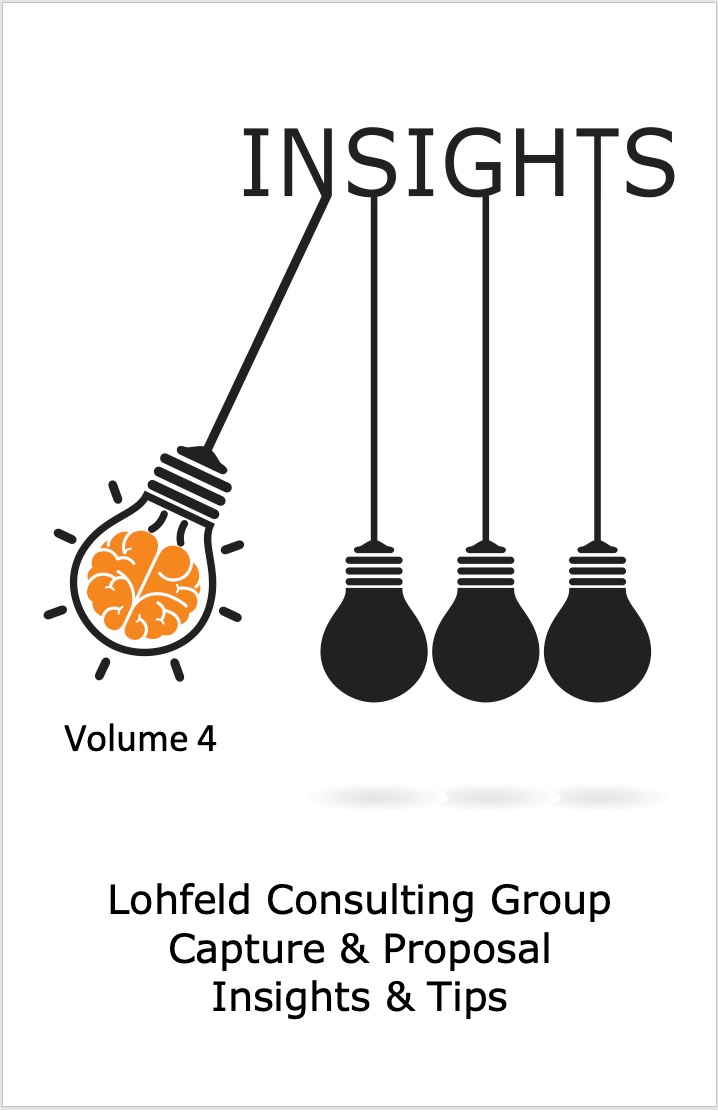Tips for Using AI to Analyze RFPs

Requests for proposals (RFPs) are often complex, lengthy, and time-consuming to analyze. However, analyzing RFPs is crucial for understanding the client’s needs, expectations, and evaluation criteria. Therefore, consider using AI to expedite your analysis and provide an independent voice.
Formulate Generative AI Prompts to Query the RFP
Upon RFP receipt, formulate Generative AI prompts to analyze it. Table 1 provides 14 prompts to consider when analyzing RFPs and describes their outputs.
Table 1: Generative AI Prompts for Analyzing RFP Contents
| No | AI Command | Description of Result |
| 1 | Create a summary and overview of RFP requirements | AI can provide a concise summary of the RFP, highlighting key points such as the customer’s name, the purpose of the RFP, deadlines, and contact information. This helps you quickly grasp the essentials. |
| 2 | Identify and describe the customer’s top priorities and pain points | AI can analyze the RFP to identify the customer’s primary concerns, goals, and challenges. Understanding these priorities is essential for tailoring your proposal effectively. |
| 3 | Describe the size, scope, and complexity of the requirements | AI can extract information about the project’s scale, scope, and complexity as outlined in the RFP. This helps you gauge the resources and expertise needed. |
| 4 | Identify and describe any requirements that may pose a risk to operations | AI can identify any risks or challenges mentioned in the RFP that could impact the project or proposal. This helps you prepare for potential issues. |
| 5 | Identify requirements that are unclear and create questions to gather more details about the requirements | Based on the RFP content, AI can generate questions or areas where further clarification may be needed. These questions can be valuable for seeking additional information from the customer. |
| 6 | Analyze the evaluation criteria and provide additional detail | AI can highlight the criteria by which the proposals will be evaluated. This includes factors such as technical expertise, cost, schedule, and past performance. |
| 7 | Identify compliance requirements | AI can identify any specific compliance or certification requirements mentioned in the RFP. This is crucial to ensure that your proposal aligns with the customer’s expectations. |
| 8 | Identify budget and price information | AI can extract information related to budget constraints, pricing structures, and any financial details mentioned in the RFP. |
| 9 | Identify instructions and submission requirements | AI can highlight instructions related to the proposal submission process, including deadlines, required formats, and any supporting documents needed. |
| 10 | Identify and describe contract terms and conditions | AI can extract details about the legal and contractual terms and conditions outlined in the RFP, ensuring that you are aware of any specific contractual obligations. |
| 11 | Identify and describe appendices and attachments | AI can identify any appendices or attachments in the RFP that provide additional context or requirements. |
| 12 | Identify the language and tone of the RFP | AI can assess the language and tone of the RFP to identify any specific preferences or expectations of the customer regarding how proposals should be written and presented. |
| 13 | Provide a competitive analysis of RFP requirements | AI can analyze the RFP to identify potential competitors, their strengths, and weaknesses. This can help you assess your position in the bidding process. |
| 14 | Identify the key contacts listed in the RFP | AI can extract contact information for key personnel or points of contact mentioned in the RFP, so you address questions and submit the proposal to the right contacts. |
Summary
Remember that the specific capabilities of AI may vary depending on the technology and tools you use. Nevertheless, AI can be a valuable resource for quickly extracting, summarizing, and organizing information from RFP documents, saving time and helping you prepare more informed and competitive proposals.
By Brenda Crist, Vice President at Lohfeld Consulting Group, MPA, CPP APMP Fellow
Lohfeld Consulting Group has proven results specializing in helping companies create winning captures and proposals. As the premier capture and proposal services consulting firm focused exclusively on government markets, we provide expert assistance to government contractors in Capture Planning and Strategy, Proposal Management and Writing, Capture and Proposal Process and Infrastructure, and Training. In the last 3 years, we’ve supported over 550 proposals winning more than $170B for our clients—including the Top 10 government contractors. Lohfeld Consulting Group is your “go-to” capture and proposal source! Start winning by contacting us at www.lohfeldconsulting.com and join us on LinkedIn, Facebook, and Twitter.
Paperback or Kindle
10 steps to creating high-scoring proposals
by Bob Lohfeld
contributors Edited by Beth Wingate
Subscribe to our free ebrief
Teaming friends, frenemies, and enemies—12 tips to mitigate harmful effects
Did you know that contracting officers spend up to 20% of their time mitigating disputes between teaming partners? In an informal poll we conducted on LinkedIn last month, 40% of respondents classified their teaming partners as “frenemies” on their last bid.
Explore Further
- Advice (446)
- AI (5)
- APMP (17)
- Business Development (198)
- Capture Management (197)
- Favorite Books (5)
- Go-to-Market (27)
- Graphics (6)
- Lohfeld Books (3)
- Past Performance (58)
- Post-submission Phase (15)
- Pre-RFP Preparation (211)
- Proposal Management (270)
- Proposal Production (60)
- Proposal Reviews (27)
- Proposal Writing (77)
- Pursuit Phase (89)
- Research Report (2)
- Resources (60)
- Tools & Tips (259)
- Training (10)
- Uncategorized (220)

Sign Up for INSIGHTS and Download your FREE book
We'd love to help you with your proposals. Enjoy our complimentary Lohfeld Consulting Group Capture & Proposal Insights & Tips book with your FREE subscription to our Insights Newsletter.
GET YOUR FREE BOOK




